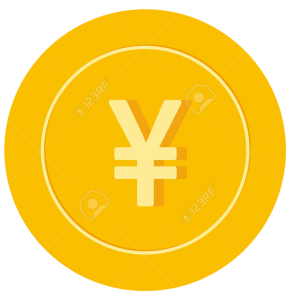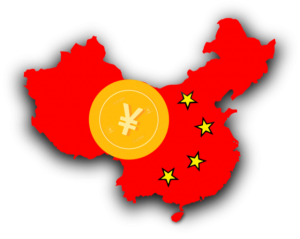
China’s moves to advance artificial intelligence leadership are well-documented and reflected by the fact that 19 of the top 50 largest patent registrations in the AI space are Chinese companies. The three largest are still US companies – IBM with 3000 applications Microsoft (1955), and Google (1659) – but just two years ago, China only had nine companies in the top 50.
Now, a new China cryptocurrency development is worth paying close attention to, and not just because of the links between artificial intelligence and payments.
New Chinese government cryptocurrency?

Bloomberg reports the People’s Bank of China (PBOC) is close to launching a digital version of its yuan currency. Unlike other cryptocurrencies, it won’t be anonymous, and its value will be linked to the fiat currency.
So why do that when two of your homegrown companies – Ant Financial and Tencent Holdings Ltd – control a majority of China’s payments transactions and are growing quickly on the global stage?
PBOC patent registrations show a digital wallet downloaded to a smartphone would be funded from a bank account, just like going to an ATM. Sending and receiving payments would be possible with any other business or personal digital wallet owner.
Simple, and not much different from mobile wallets operating in development around the world. Except that control is in the hands of government, a possibility both frightening and yet fully logical in China.
Cashless already big in China

Research firm Analysys reports mobile apps in China handled 59 trillion yuan ($8.3 trillion) of transactions, up 15% from the year previous.
As Bloomberg reports, “Ant Financial’s Alipay handled almost half of that, followed by Tencent’s WeChat Pay with a third. The PBOC says all non-cash transactions (which also includes such things as credit, debit and stored-value cards, bank transfers and checks) totaled 3.8 quadrillion yuan ($533.96 trillion) in 2018.”
What’s China’s big strategy?
Tracking digital transactions is a big step in fighting money laundering, financial and other crimes. But it also protects China from having to adopt another global and possibly unfriendly and uncontrollable standard like bitcoin or Facebook’s Libra cryptocurrency.
The C-word isn’t so much cryptocurrency as much as it’s about control and self-determination.
Is it a cryptocurrency?

In fact, as a centralized digital currency, it really doesn’t fit the common definition of a cryptocurrency as a decentralized currency, not controlled by any central entity. And it’s unclear at this stage whether it will even use blockchain technology because of its limitations on transaction capacity.
Blockchain certainly couldn’t handle the 92,000+ transactions per second during last year’s China Singles Day e-commerce sales extravaganza.
Confidentiality and anonymity would also not work the way bitcoin and other cryptocurrencies currently do. PBOC says personal wallet transaction data would not be shared, but the government would know the identities of wallet owners.

“That is perfectly logical in China,” as Spock would say to Capt. Kirk on the Starship Enterprise. But that lack of anonymity won’t fly in most other countries, nor in the international banking world as it operates today.
Some analysts wonder why consumers in China would choose a government e-wallet over the perfectly functioning digital wallets available, including Alipay and WeChat Pay. It would also require a new banking infrastructure to implement.
The central banks in Uruguay (e-Peso), Sweden (e-Kroner) and even troubled Venezuela (Petro) have also toyed with national digital currencies.
All in all, it’s an interesting idea, a compelling potential sovereign strategy, but not necessarily a real-world possibility yet. But China could be the first to make a centralized cryptocurrency a reality in the near future.
As they say on TV, stay tuned!

